A captivating set of Women’s Rugby World Cup semi-finals leave two key questions: Can Canada produce the same sort of performance that dethroned New Zealand again on the sport’s biggest stage? And can England afford to be as clunky and disconnected as they were for much of their win over France and still emerge as champions on home soil? In its totality, here was a weekend of glorious contrast that this tournament perhaps needed, two beautiful battles in very different ways contested with an intensity befitting an event that has catapulted women’s rugby into a spotlight it deserves.
One would still suspect that the Red Roses, now 32 games unbeaten, will take some stopping at Twickenham next week on their day of destiny but assessing the finalists only on their most recent outing provides a straight-forward conclusion. Even England themselves would probably admit that the finest performance of the weekend came from the Canadians, vanquishing the Women’s World Cup’s perennial final boss with a performance of extreme accuracy and the clinical edge that the rest of the last four lacked.
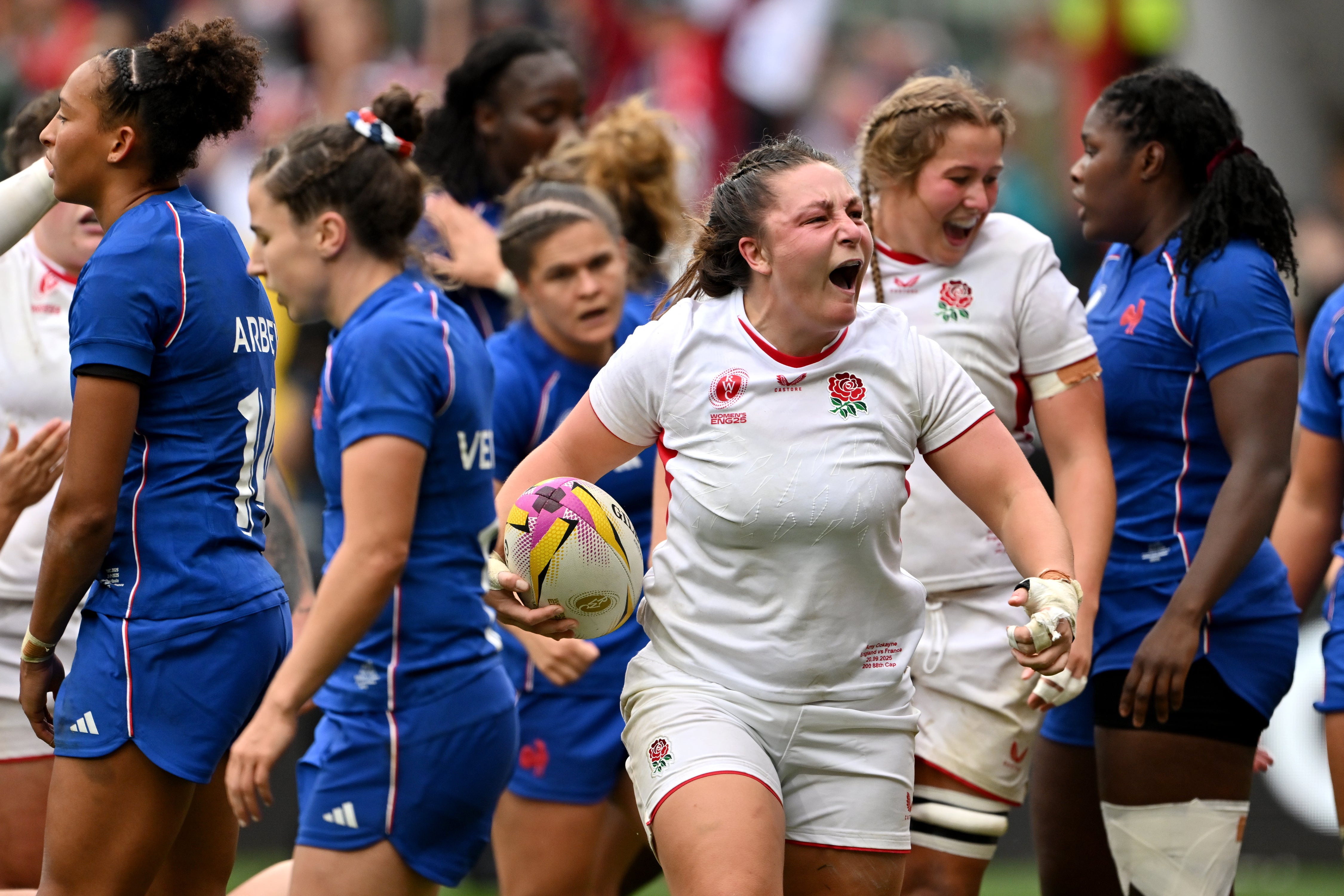
But England scrap onwards, surely better for their first true test of the tournament. There were times at Ashton Gate on Saturday afternoon where the crowd knew not what to make of France’s superiority – but the final 20 minutes showed how Les Bleues had erred in not making the most of their earlier opportunities to build scoreboard pressure. Coaches crave efficiency in the opposition 22 above almost all else; at half-time, France had ventured into the English “red-zone” eight times and had just five points to show for it.
It was a difficult defensive performance in many ways from the home favourites, cut repeatedly in the outside channels and losing plenty of collisions in close-in combat, but there was one area where the Sarah Hunter-drilled defence excelled. Ellie Kildunne may have taken the plaudits as the official player of the match but each and every Red Rose after the win sought to highlight the contributions of Hannah Botterman and Meg Jones, the loosehead and outside centre brilliant at the breakdown on a day of the jackal that England needed.
The tone was set in the opening minutes by Botterman. France moved quickly through the gears to threaten England’s line after getting easily around the left edge through long-striding wing Kelly Arbey. Moving back infield, Pauline Bourdon Sansus picked out her forward runners, but prop Yllana Brosseau was stood up by Morwenna Talling and Botterman in a strong double tackle.
Cannily, the prop held her feet and then showed a clear release, enabling her to instantly contest – and with French hooker Agathe Gerin in at the side, England had a penalty and were out of danger.
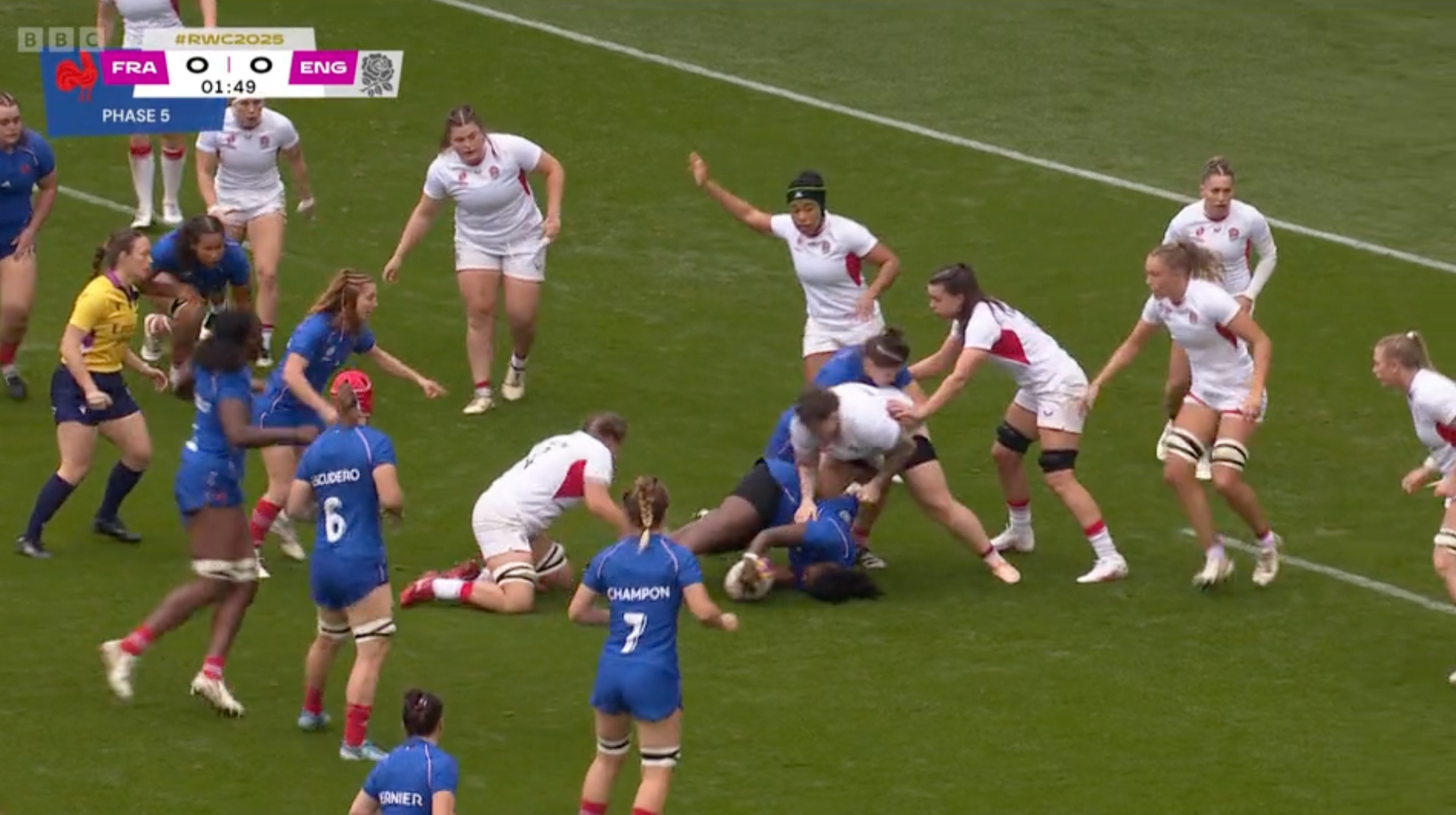
The first half continued in that vein, the Red Roses’ defence bending but not breaking. Jones earned one turnover on halfway in combination with Tatyana Heard, the No 12 lassoing the ankles of Nassira Konde and allowing her centre partner to limpet over the top.
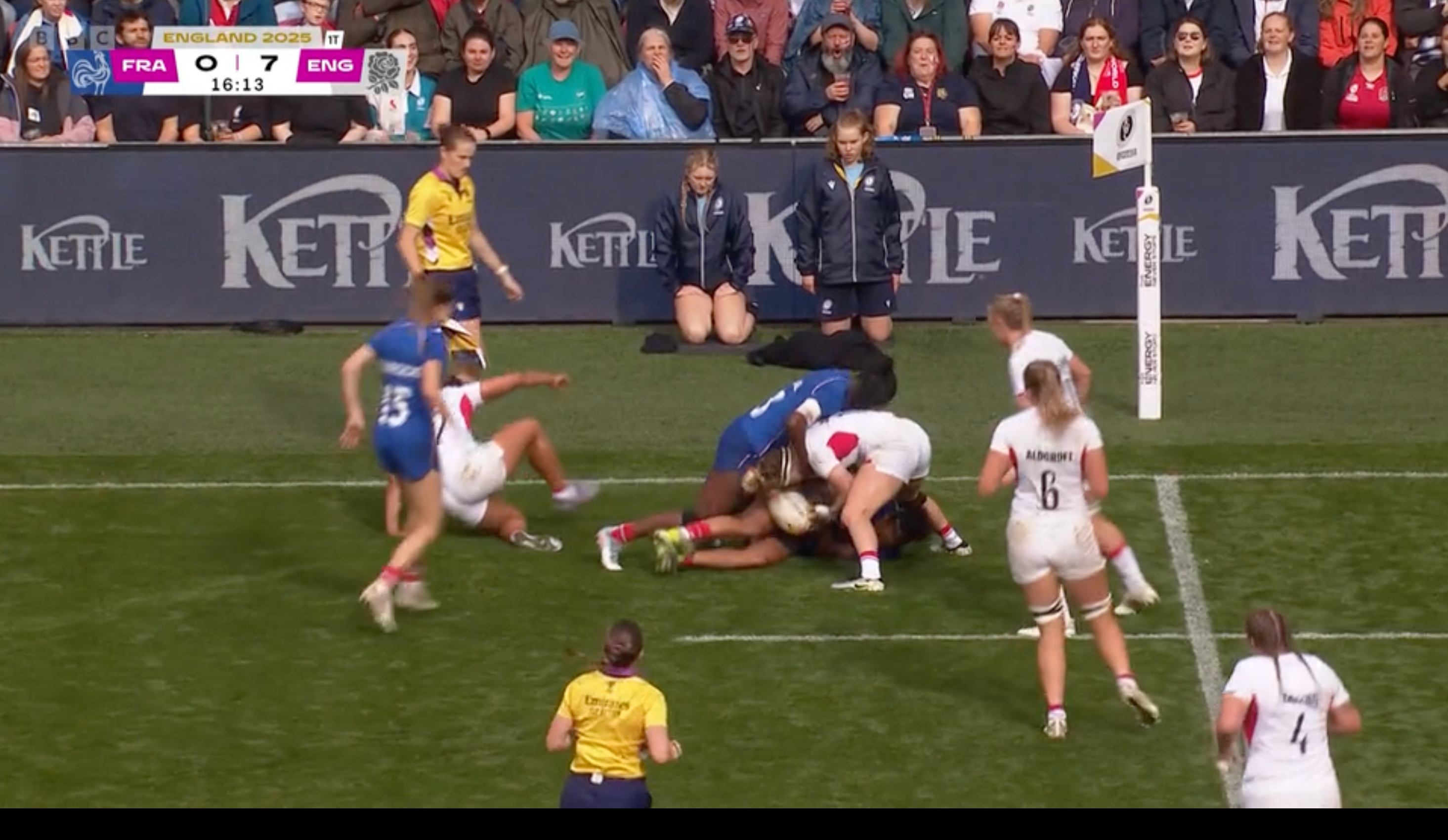
The pair virtually went turnover for turnover, two of the more expressive characters in England’s squad forming their beating emotional heart on a day where they had to match France’s passion. After another excellent jackal just before half time, loosehead Botterman flashed three fingers as she pumped her other fist; Jones would match that tally later before capping her performance with a slightly fortuitous score late on. 50 percent of France’s rucks took more than three seconds compared to 35 percent for England – that difference in speed of ball told.
“It gives me a massive buzz, I know it gives the rest of the group a buzz as well,” Jones said. “When Botts gets those turnovers it elates me as well.
“I was giving her a bit of stick. I said it is three-two [in terms of the number turnovers, and then she got subbed off and then I got another one and I looked at the bench and said, 'it's three-all now.”

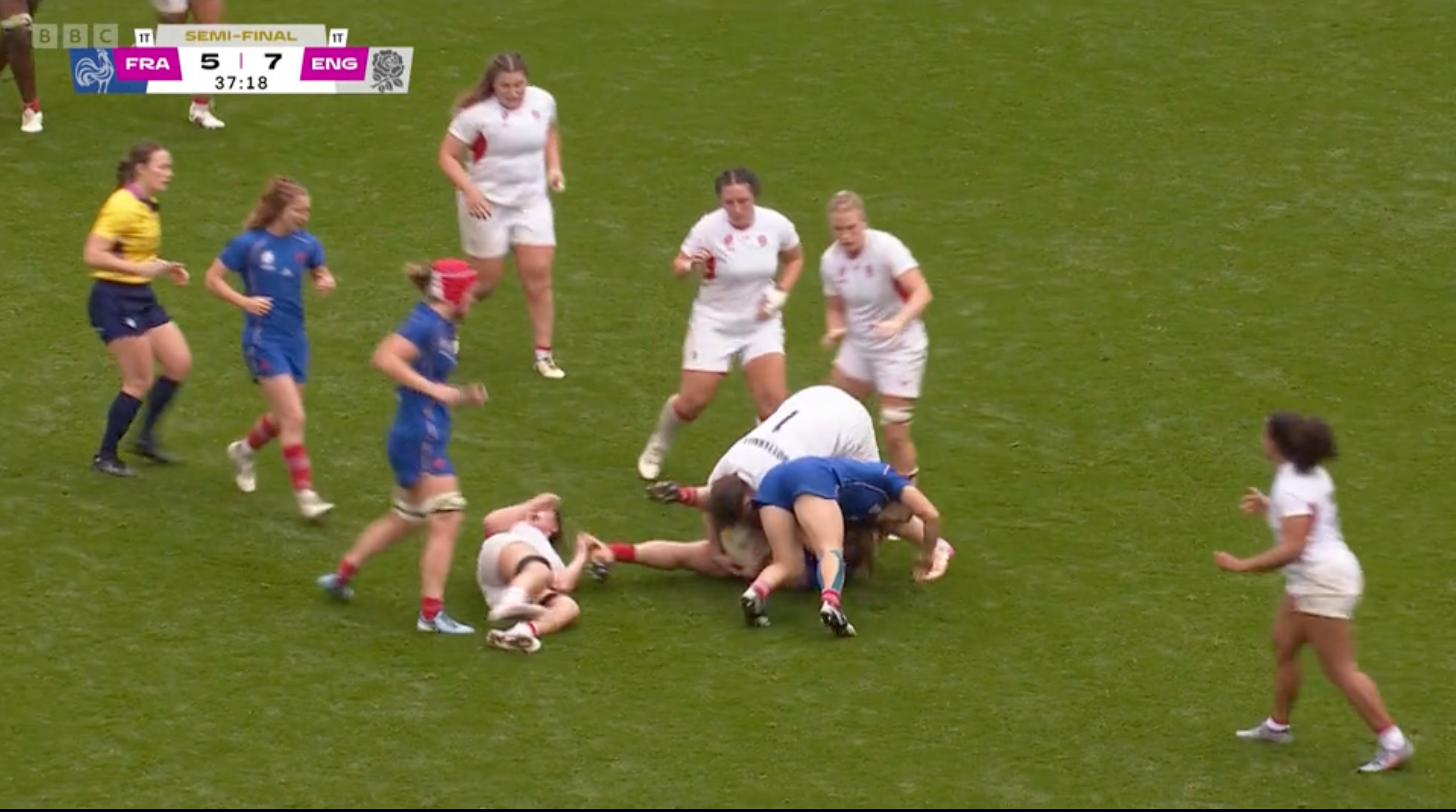
The pair’s capacity to contest at the ruck is a vital component of England’s defensive gameplan. Openside Sadia Kabeya has usurped Marlie Packer, and is more of a tackle-first flanker than jackal threat. Jones has honed her skillset as a sevens stalwart, with ability to contest a breakdown a key facet of the shorter format, while Botterman is backing up her claim as the world’s best loosehead by showcasing her all-round game – head coach John Mitchell sought also to highlight how well she dealt with the powerful Rose Bernadou at scrum-time.
“Botts and Meg have been doing it all season,” Kabeya, who topped the charts with 27 tackles, explained. “You can always count on them. It’s not something they train, it’s just instinct for those players and you know they will pull it out in a big moment. I think I’ve just honed in what my strength is, which is that tackle threat, and being really aggressive around there. You can try and add new things to your game, but I think honing in on what I am really good at has helped me get that starting shirt.”
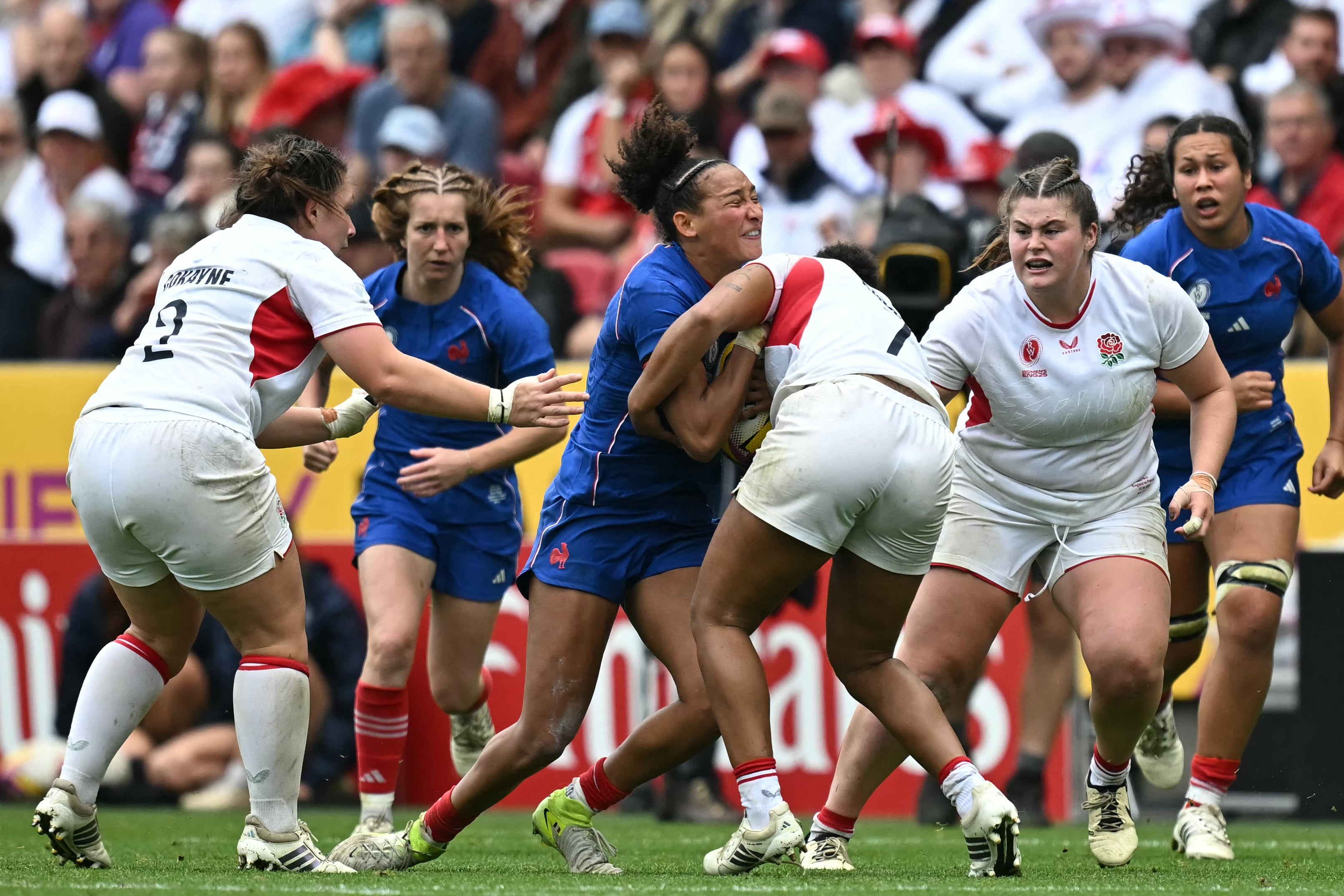
England may have to be even better at the breakdown come next week’s final at Twickenham. Canada ability to generate quick ball is part of what makes them such a dangerous attacking force, a variety of close-in carries and ingenuity through their creative spine causing New Zealand all manner of problems. That ruck speed statistic is again key: 76 percent of Canada’s breakdowns against the Black Ferns were cleared inside three seconds. “Canada thrive on fast rucks,” Kabeya assessed. “If we can slow that down, we’ve got a game on our hands.”
Just as interesting might be what the Canadians do when England have the ball. Coached by Saracens head coach Alex Austerberry defensively at this tournament, it was notable how many bodies Canada tried to keep on their feet against New Zealand, happy not to overly bother the breakdown and instead ensure they had a full complement in the defensive line. “We knew the Black Ferns could throw anything at us, so if we were going to go into the breakdown, we had to be really sure and not lose a defender off their feet for no reason,” full-back Julia Schell explained.
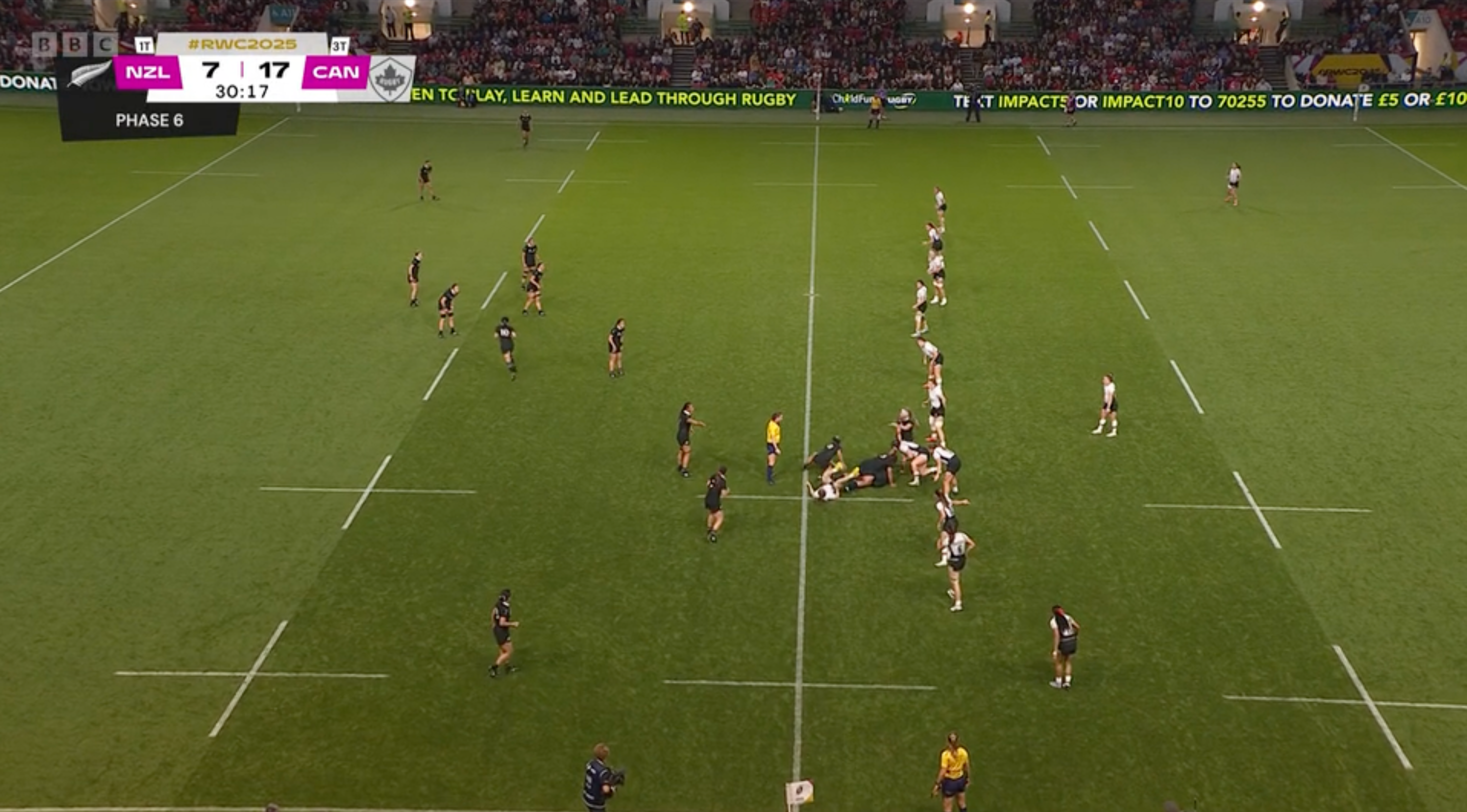
It took the Black Ferns a long time to adjust, eventually getting a bit of joy through their tactical kicking game; England will surely be better prepared, though might expect Canada to be slightly less passive. Regardless, the breakdown battleground could well decide the final.
.png)
 German (DE)
German (DE)  English (US)
English (US)  Spanish (ES)
Spanish (ES)  French (FR)
French (FR)  Hindi (IN)
Hindi (IN)  Italian (IT)
Italian (IT)  Russian (RU)
Russian (RU) 






Comments